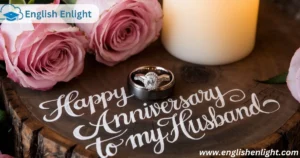In the realm of storytelling, the conclusion holds immense significance. It is not merely about signaling that the narrative has finished; rather, it shapes how the audience perceives the story and its themes.
The phrase “The End” is conventional, but exploring alternative expressions can enrich your writing and evoke deeper emotional responses. In this article, we will explore 25 different ways to signify the end of a story, complete with examples and thoughtful insights.
1. And So It Goes…
This phrase implies continuity in life and suggests that while the story may end, the journey continues for the characters and readers alike.
Scenario Example: Imagine a reflective piece about an such as older people woman’s life. The final lines might read:
“As she looked back on the countless moments that shaped her, she smiled softly. And so it goes, the journey continues in the hearts of those who remember.”
Expert Addition:
This phrase works well in stories that deal with themes of nostalgia and the passage of time, giving a sense of hope.
2. To Be Continued…
A classic cliffhanger, this phrase indicates that the story is not quite finished, allowing for future exploration of characters and plots.
Scenario Example: In a mystery novel, you might end with:
“As the clock struck midnight, she received a mysterious message. To be continued…”
Expert Addition:
Using this phrase can build anticipation for a sequel or series, effectively engaging readers and encouraging them to seek more from your writing.
3. In Conclusion…
Often used in essays, this formal phrase can also lend a sense of finality to narratives, summarizing the main points.
Scenario Example: In a story about environmental activism, the conclusion might read:
“In conclusion, the fight for our planet is far from over, but every small action leads to significant change.”
Expert Addition:
This expression is suitable for analytical or persuasive narratives, emphasizing key takeaways and reinforcing the story’s message.
4. The Journey Lives On…
This phrase implies that while the story may have ended, the experiences and memories will continue to resonate.
Scenario Example: At the conclusion of an epic fantasy tale:
“With the dark forces vanquished, the heroes embraced. The journey lives on in the stories shared around the fire.”
Expert Addition:
Ideal for fantasy or adventure genres, this phrase evokes a sense of adventure and camaraderie among characters.
5. As the Curtain Falls…
A theatrical phrase that creates a dramatic sense of finality, reminiscent of closing a stage production.
Scenario Example: In a poignant drama about love and loss:
“As the curtain falls, the audience is left with echoes of their laughter and tears.”
Expert Addition:
Use this expression in dramatic narratives to enhance emotional impact and create a vivid image of closure.
6. And So, We Part Ways…
This gentle phrase indicates that while the characters are going their separate ways, the memories will remain.
Scenario Example: In a story about friendship:

“With a bittersweet smile, they shared one last hug. And so, we part ways, carrying our shared memories in our hearts.”
Expert Addition:
This phrase is effective in stories centered around friendship and personal growth, emphasizing the importance of shared experiences.
7. Forever Etched in Memory…
This expression suggests that the events of the story will linger in the characters’ and readers’ minds long after the final words.
Scenario Example: In a nostalgic reflection on childhood:
“The laughter, the tears, and the lessons learned will forever be etched in memory, guiding them as they forge ahead.”
Expert Addition:
Ideal for narratives that explore memory and nostalgia, this phrase creates an emotional connection with the audience.
8. With a Heavy Heart…
A phrase that conveys deep emotion, suggesting that the conclusion is bittersweet or sorrowful.
Scenario Example: In a tragedy about lost love:
“With a heavy heart, she watched him walk away, knowing some stories are meant to be left unfinished.”
Expert Addition:
Use this expression in tragic narratives to evoke empathy and resonate with readers’ emotions.
9. The Final Chapter…
This phrase signifies a definite end while also suggesting that the story has had many parts leading up to this moment.
Scenario Example: In a tale of personal transformation:
“As she stepped into her new life, she realized that this was the final chapter of a story filled with struggle and triumph.”
Expert Addition:
This expression works well in character-driven stories, emphasizing the growth and change that characters undergo.
10. As the Last Page Turns…
A metaphorical expression that implies the conclusion of the narrative, often used in a reflective or poetic manner.
Scenario Example: In a story about coming-of-age:
“As the last page turns, she feels a mix of nostalgia and excitement for the journey that lies ahead.”
Expert Addition:
This phrase can enhance the emotional weight of the conclusion, especially in stories focused on growth and self-discovery.
11. Until Next Time…
This informal expression leaves the door open for future stories, suggesting continuity and connection with the audience.
Scenario Example: In a light-hearted series:
“As the sun set on another adventure, they waved goodbye, saying, ‘Until next time!'”
Expert Addition:
This is particularly effective in series or episodic narratives, creating a sense of familiarity and anticipation for readers.
12. The Adventure Continues…
This phrase suggests that while this chapter may close, the adventures of the characters will carry on.
Scenario Example: In a fantasy saga:
“With new quests on the horizon, the adventure continues for our brave heroes.”
Expert Addition:
Use this expression to convey a sense of optimism and excitement, especially in genres focused on exploration and adventure.
13. Thus Concludes Our Tale…
A formal and grand way to end a story, giving it a sense of closure and finality.
Scenario Example: In a historical fiction narrative:
“Thus concludes our tale of courage and sacrifice, a reminder of the heroes who shaped our history.”
Expert Addition:
This phrase can elevate the tone of your writing, making it feel more significant and weighty.
14. As the Story Unfolds…
This phrase suggests that while this chapter ends, the narrative continues to evolve.
Scenario Example: In a family saga:
“As the story unfolds, new generations carry on the legacy of love and resilience.”
Expert Addition:
This expression works well in multigenerational stories, emphasizing the continuity of family histories.
15. In Retrospect…
A reflective phrase that allows the characters and readers to look back on the journey taken.
Scenario Example: In a memoir-style narrative:
“In retrospect, every twist and turn shaped who I am today.”
Expert Addition:
This phrase can enhance the introspective quality of your writing, allowing for deeper connections with readers.
16. And That’s a Wrap!
A casual, playful way to signify the conclusion of a story, often used in light-hearted contexts.
Scenario Example: In a comedic tale:
“After all the mishaps and laughter, and that’s a wrap!”
Expert Addition:
This phrase adds a fun twist to your conclusion, perfect for stories that don’t take themselves too seriously.
17. As We Bid Farewell…
A gracious way to signal the end of a story, suggesting a parting of ways.
Scenario Example: In a heartfelt story about friendship:
“As we bid farewell, the memories we’ve created will always remain in our hearts.”
Expert Addition:
This phrase works well in emotional narratives, emphasizing the significance of relationships and shared experiences.
18. And So It Ends…
A straightforward yet impactful way to conclude a narrative.
Scenario Example: In a somber story about loss:

“With one final breath, the struggle was over. And so it ends.”
Expert Addition:
This expression can effectively communicate a sense of closure, particularly in serious or reflective narratives.
19. A New Dawn Awaits…
This phrase suggests that even as one story ends, new beginnings are on the horizon.
Scenario Example: In a story about personal transformation:
“With courage in her heart, she stepped forward, knowing a new dawn awaits.”
Expert Addition:
This expression is ideal for narratives focused on growth and change, emphasizing hope and renewal.
20. As the Dust Settles…
A phrase that implies resolution after a tumultuous journey, suggesting that clarity has been achieved.
Scenario Example: In a story about overcoming adversity:
“As the dust settles, they realize the strength they found within.”
Expert Addition:
Use this expression in stories that involve conflict and resolution, providing a sense of relief and closure.
21. And So, the Tale is Told…
This phrase suggests that the story has been shared and now stands complete.
Scenario Example: In a traditional folk tale:
“And so, the tale is told, passed down through generations.”
Expert Addition:
This expression can evoke a sense of heritage and tradition, especially in stories that draw from cultural narratives.
22. With That, We Conclude…
A formal way to signal the end of a narrative while summarizing its essence.
Scenario Example: In a reflective narrative:
“With that, we conclude our exploration of love, loss, and the resilience of the human spirit.”
Expert Addition:
This phrase is suitable for thoughtful or philosophical narratives, providing a final reflection on the themes presented.
23. And Thus, We Say Goodbye…
This phrase expresses a heartfelt farewell, suggesting emotional depth.
Scenario Example: In a story about family separation:
“With tears in their eyes, and thus, we say goodbye, carrying the memories forward.”
Expert Addition:
Use this expression in emotional narratives, enhancing the sentiment of parting and loss.
24. Every Ending is a New Beginning…
A hopeful perspective on endings, suggesting that each conclusion paves the way for new opportunities.
Scenario Example: In a story of growth:
“As they closed this chapter, they remembered that every ending is a new beginning.”
Expert Addition:
This phrase is particularly effective in inspirational narratives, promoting a positive outlook on change.
25. The End?
A playful and engaging way to conclude, suggesting that there might be more to come.
Scenario Example: In a whimsical story:
“As the characters waved goodbye, one turned back and said, ‘The end?'”
Expert Addition:
This phrase can create a sense of fun and engagement, encouraging readers to think about the possibilities beyond the narrative.
Pros and Cons of Different Endings
Pros:
- Variety: Using different phrases keeps the conclusion fresh and engaging.
- Tone Matching: You can match the tone of your ending to the overall narrative.
- Reader Connection: Creative conclusions can evoke stronger emotional responses.
Cons:
- Clarity: Some phrases might confuse readers if not used appropriately.
- Overuse: Using the same conclusion repeatedly can lead to predictability.
- Genre Suitability: Not every phrase fits all genres, so choose wisely.
FAQs About “The End” in a Story
1. Why should I avoid using “The End” in my stories?
While “The End” is a traditional way to conclude a story, it can feel clichéd and predictable. Exploring alternative phrases can add creativity and depth, enhancing the reader’s emotional connection and leaving a more memorable impact.
2. Can I use multiple endings in one story?
Yes, using different phrases for various sections of your story can create variety and keep readers engaged. For example, you might use a light-hearted phrase for a humorous conclusion and a more serious one for a dramatic ending.
3. How do I choose the right ending phrase for my story?
Consider the tone and themes of your narrative. A whimsical story might benefit from a playful phrase like “The End?” while a serious drama may call for something more poignant, such as “With a Heavy Heart.”
4. Are there certain phrases that work better in specific genres?
Absolutely! Different genres have their conventions. For instance, fantasy stories often use phrases that evoke adventure, like “The Adventure Continues,” while literary fiction may benefit from reflective endings, such as “In Retrospect.”
5. Can I create my own unique ending phrase?
Definitely! Crafting a personalized phrase can make your story stand out. Ensure it aligns with the story’s tone and themes, and consider how it resonates with your readers’ emotions.
Conclusion
Exploring various ways to express the end of a story enhances your writing and connects with readers on a deeper level. By considering the tone, themes, and emotions you wish to convey, you can select the perfect phrase to conclude your narrative. Whether you opt for something traditional or inventive, the right ending can leave a lasting impression.
Thank you for taking the time to explore these alternatives with me, Daniel Brown. If you have any questions or want to discuss further, please don’t hesitate to reach out. Give me a few days to learn more about your thoughts on this topic, and I look forward to hearing from you soon!

“Hi there! I’m Sarah Jacobs, the creative mind behind the enlightening content you’ll find on EnglishEnlight.com. As an author and enthusiast of all things language-related, I’m dedicated to providing engaging and insightful resources to help you master English communication with confidence. Explore the website to discover a treasure trove of articles, tips, and tools designed to illuminate your path to linguistic excellence.”














